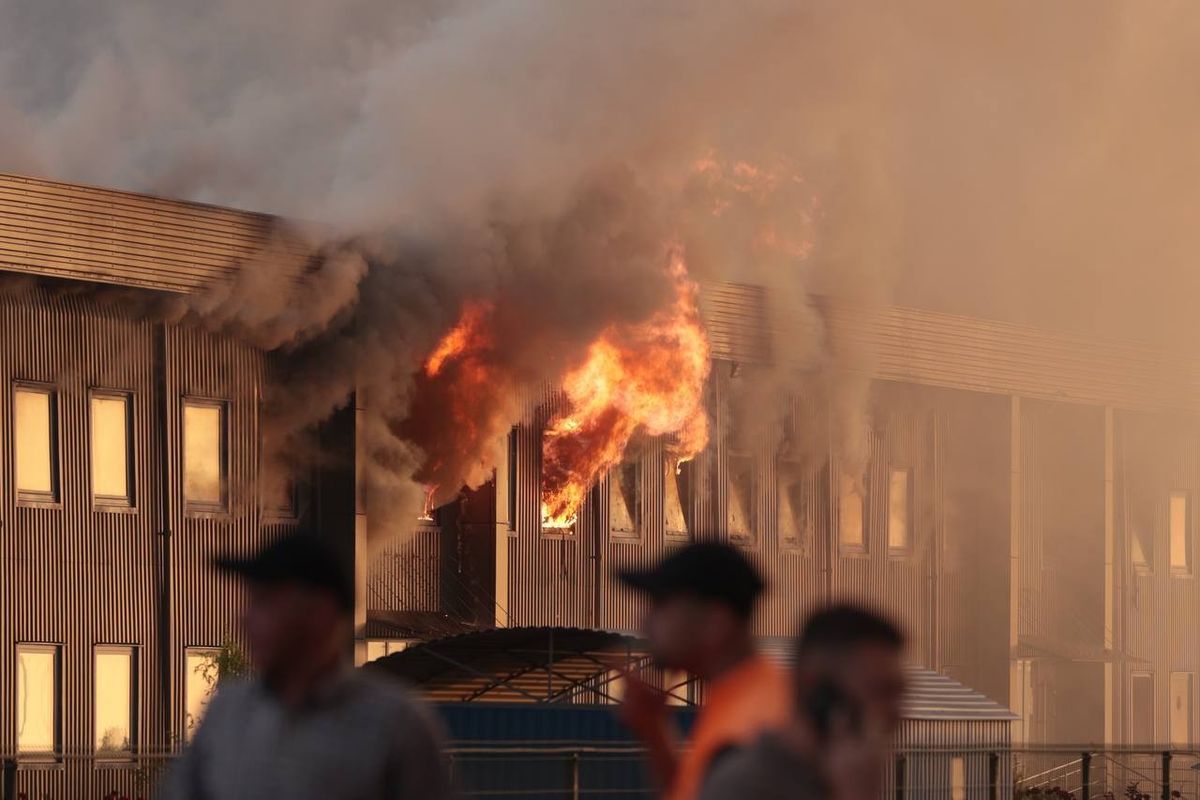Reports that President Trump has ordered a withdrawal of U.S. troops from Syria are not inconsistent with prior messages we’ve heard from the President this year. In April, The Cipher Brief polled a number of our Experts based on the President’s statements that he wanted to ‘bring our troops back home.’ We asked them how such a withdrawal could impact the region.
In ‘In or Out? Mixed Signals from the Trump Administration on Syria’, published on April 4, 2018, one of the experts we spoke with was Ambassador James Jeffrey, the former U.S. Ambassador to Iraq and Turkey who went back to the State Department in early August to become the Secretary’s Special Representative on Syria Engagement.
On April 3, 2018, referring to U.S. involvement in Syria, President Trump said, “The primary mission in terms of that was getting rid of ISIS. We’ve almost completed that mission, and we’ll be making a decision very quickly, in coordination with others in the area, as to what we’ll do…I want to get out, I want to bring our troops back home.”
This was Jeffrey's analysis then:
Ambassador James Jeffrey, April 2018
“The primary U.S. goal in Syria should be to push back against Iranian hegemony over the Levant from Iraq to Lebanon and the related consolidation of a totalitarian Assad regime—both enabled by Russia. That is a game-changer and directly threatens our allies—Israel, Turkey, the Arab states—and the regional American-led security system."
"Fighting ISIS remnants in our main areas of presence in Syria, which is the northeast, as well as an enclave around al Tanf in the far south, is a secondary but much less threatening interest. Moreover, our experience from 2012-14 shows that if the regional security system does not deal with Iranian expansion through surrogates like former Iraqi Prime Minister Nouri al-Maliki and Assad into Sunni Arab areas, then populations will turn again to Sunni extremist movements like ISIS and al-Qaida.
So, if the U.S. military completely withdrew from Syria, it would be disastrous to goals above. But there is a disconnect here. Trump seems to be talking specifically about the 2,000 ground troops we have in Syria.
Pulling them out, but keeping our air power active over areas we now occupy in the northeast to operate as a no-fly zone (and maintaining a small ground contingent in al Tanf, right on the Syrian border with Iraq), attack ISIS elements (including U.S. In-out ground raids) and help our local partner Syrian Defense Forces (SDF) hold off the Syrian regime/Iranian advances makes sense, to add a military component to our political containment of Iran and allies."
Ambassador James Jeffrey, April 2018
"So, we don’t need the ground forces inside Syria. They are mainly liaison, trainers, air controllers and support troops. They are far too small and are not organized to hold terrain or even defend themselves."
"Furthermore, their authorization to be on the ground from Congress is only for operations against terrorists like ISIS. Central Command’s Gen. Joseph Votel made this crystal clear in congressional testimony.
Yet their presence encourages the Kurdish dominant component of the SDF, the PYD—which is the Syrian arm of the terrorist / insurgent Turkish Kurdish PKK—to avoid any compromises with Turkey, as Americans are on the ground with them, and makes Turkey think the U.S. is setting up a statelet, thus undercutting any joint Turkey-U.S. action against Iran and Assad.
The U.S. troops also are vulnerable as seen in recent days to attacks by ISIS, by Russian mercenaries and Assad/Iranian forces, Turks in the sensitive Manbij enclave, and even the PYD if disappointed in the lack of support against the Turks.
U.S. troops on the ground have also developed an emotional bond with the PYD Kurds that stymies rational Washington thinking on Syrian issues. Any effort to even tweak policy is met with resounding cries of selling out battle-buddy Kurds and opening the door to ISIS’ return. From 1991-2003, the U.S. coordinated with Iraqi Kurds, providing air cover but not ground troops, in a mutually successful operation without accepting their political agenda. It could work in Syria, with minimal liaison teams temporarily on the ground, like in Iraqi Kurdistan traveling back and forth as needed.
Assad and his allies are winning. But if the U.S. focused on this key threat, rather than emphasis on fighting ISIS, which is almost destroyed, then we could partner with Turks and Israelis who have forces in/over Syria and Arab states to exert diplomatic and military pressure on the regime from areas within Syria. This would encourage a Russian-Syrian compromise solution to the conflict that could include enforceable prohibition on Iranian power projection out of Syria."
For more on The Cipher Brief's Special Coverage of the U.S. decision to pull out of Syria, read 'Will Syria Become a Path to the Next 9/11?'
Read more from Ambassador James Jeffrey here...














